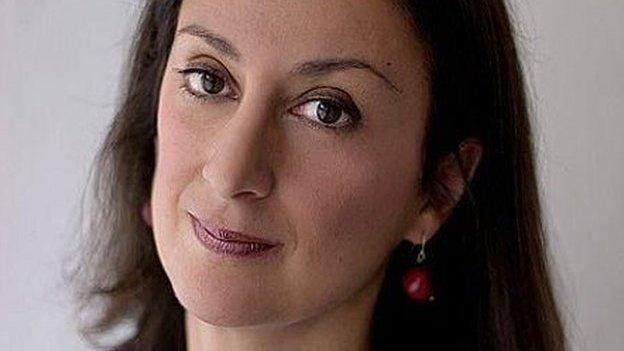Malta businessman held on yacht in journalist murder probe
- Published
Protesters outside Malta's parliament demand justice
A Maltese businessman has been arrested as part of the investigation into the murder of journalist Daphne Caruana Galizia two years ago.
Yorgen Fenech was detained by armed officers after his yacht was intercepted and searched.
It comes a day after PM Joseph Muscat said he would consider a pardon for the alleged middleman in the case.
Caruana Galizia, an anti-corruption blogger, was killed by a car bomb near her home in October 2017.
Malta's handling of the case has drawn international criticism.
On Wednesday, several hundred people protested outside parliament in Valetta demanding the resignation of the prime minister.
Demonstrators trapped one minister in his car, banging on the roof as police officers struggled to move them back.
Mr Muscat referred to Mr Fenech as "a person of interest" in the case when addressing local media. A government source later confirmed to the BBC that Mr Fenech was arrested in connection with the ongoing investigation.
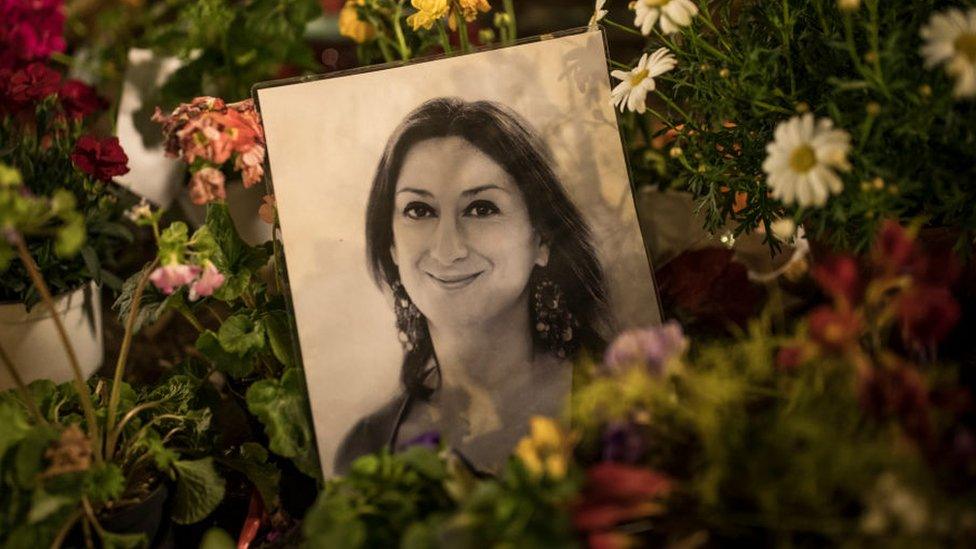
The murder of Daphne Caruana Galizia stunned Maltese society
"The fact that the country's institutions were given the resources to carry out this operation - a major operation, to ensure no-one fled the country or tried to flee the country - shows the government's resolve and mine," the prime minister said. "We are leaving no stone unturned."
Witnesses quoted by the Times of Malta said Mr Fenech's luxury yacht was intercepted by an armed patrol boat as it left the port of Portomaso, north of Valletta, early on Wednesday.
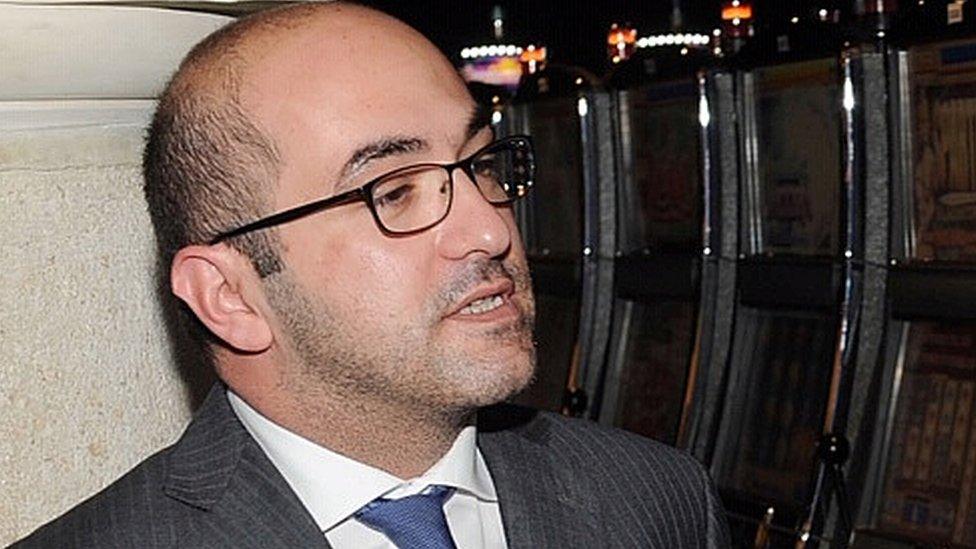
Yorgen Fenech is a well known businessman in Malta
On Tuesday, Mr Muscat said the alleged money launderer suspected of being the middleman would first have to give evidence in court before a pardon could be issued.
"I gave a mandate to the attorney general to negotiate with the person's lawyers to take an unprecedented step," the prime minister was quoted as saying.
"If the person collaborates and the information provided is sufficient to prosecute the mastermind of this crime, they will receive a presidential pardon."
Who is Yorgen Fenech?
Mr Fenech was head of the Tumas Group and a director of energy generating company Electrogas, but had recently resigned from both positions, according to documents made public on Wednesday.
He was also identified by Malta's Financial Intelligence Analysis Unit (FIAU) as being the owner of a Dubai-registered company called 17 Black. This was later confirmed to the BBC.
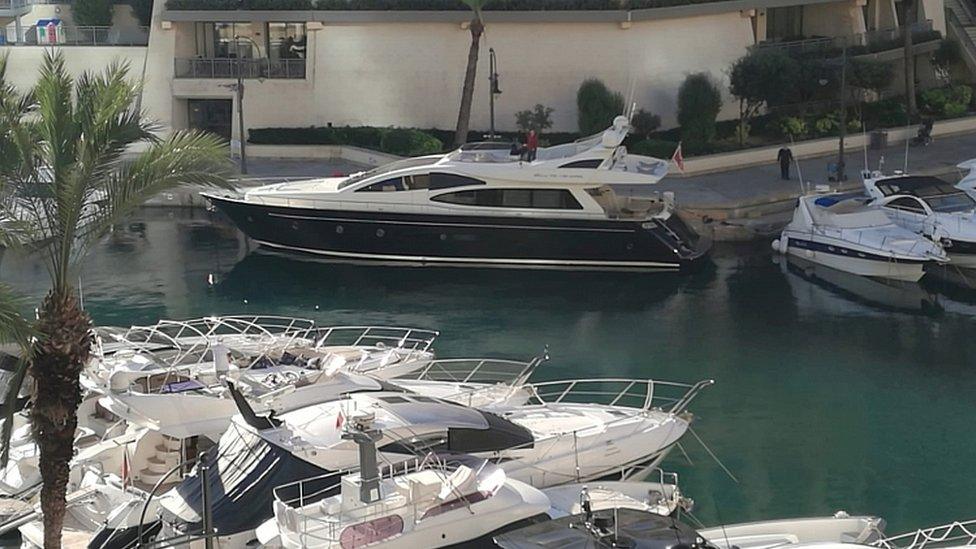
Yorgen Fenech's yacht was taken back to Portomaso and sealed off by police
In June the Council of Europe named 17 Black in a resolution, external outlining "fundamental weaknesses" that had allowed major scandals to go unchecked in Malta.
Its report said 17 Black had been expected to make large monthly payments to secret Panama companies owned by senior Maltese officials and had also received large sums of money from an Azerbaijani national.
The German industrial group Siemens, which is a shareholder in Electrogas, said in a statement on Wednesday that after corruption allegations against Mr Fenech "became known some time ago" it confronted him about the reports.
"Due to the public doubts in Mr Fenech's integrity, Siemens urged that he be dismissed from his membership on the Board of Directors," Siemens said.
Who else has been arrested?
As well as the suspected middleman - who has not been named - three other suspects are in custody over the journalist's murder.
Andrew Borg Cardona, a friend of Daphne Caruana Galizia, speaks about her death
Three men - brothers Alfred and George Degiorgio and their friend Vincent Muscat, all in their 50s - have been charged with triggering the car bomb which killed Caruana Galizia near her home in October 2017. They were arrested in December 2017 and pleaded not guilty in pre-trial proceedings.
Vincent Muscat is not related to the prime minister.
Who was Daphne Caruana Galizia?
She was an investigative reporter who, in her 30-year career, had worked for the local Sunday Times and Malta Independent newspapers.
But by the time she was killed she was best known for her anti-corruption blog Running Commentary, which she had been compiling since 2008.
After a piece on the Panama Papers leak and its implications in Malta, the news site Politico described her as "a one-woman WikiLeaks, crusading against untransparency and corruption in Malta, an island nation famous for both".
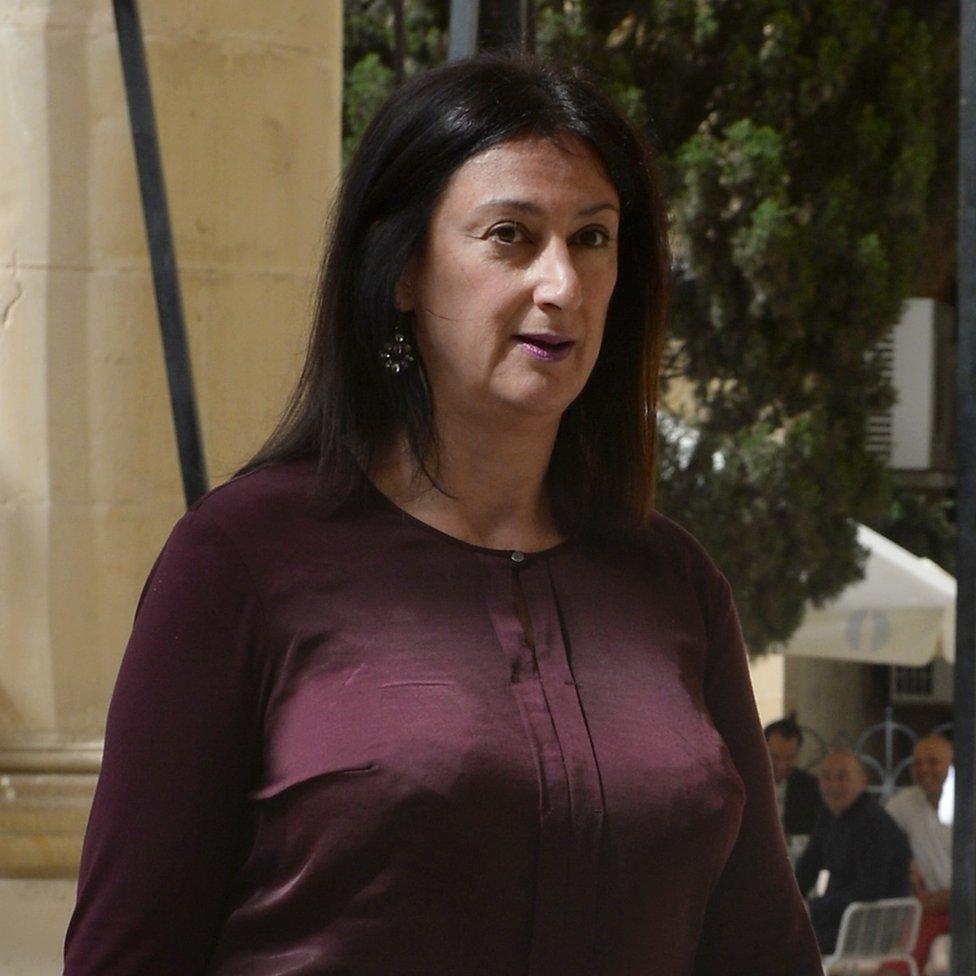
Caruana Galizia, pictured just a few months before her death, was best known for her blog Running Commentary
She was regularly threatened or hit with defamation claims from the powerful figures she exposed. She was also on the receiving end of intimidation and threats to her life.
Before her death, Caruana Galizia was considering leaving Malta out of concern for her safety. However, she refused to be put under permanent police protection as she said it would make it impossible for her to do her job.
She published her final blog post just half an hour before she was killed.
"There are crooks everywhere you look now," she wrote. "The situation is desperate."
- Published20 September 2019
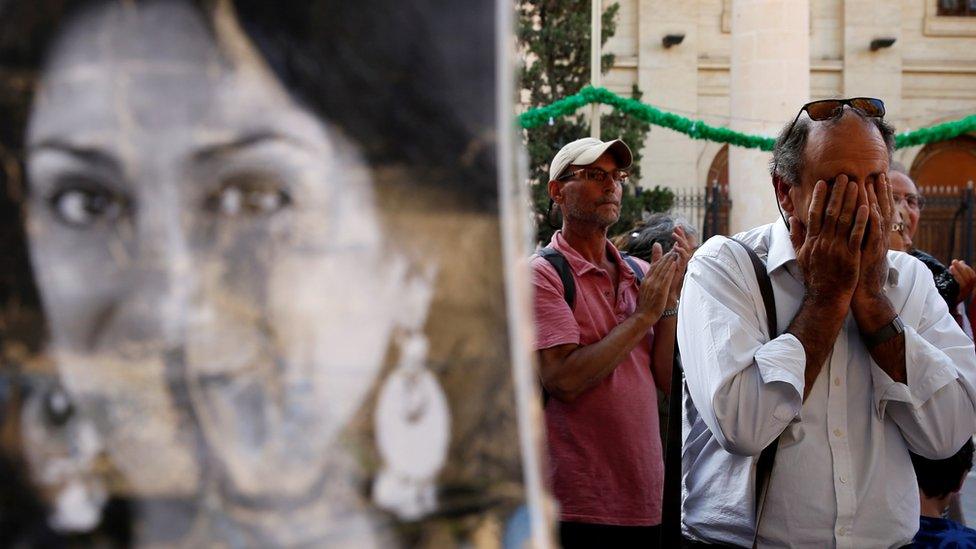
- Published9 August 2018
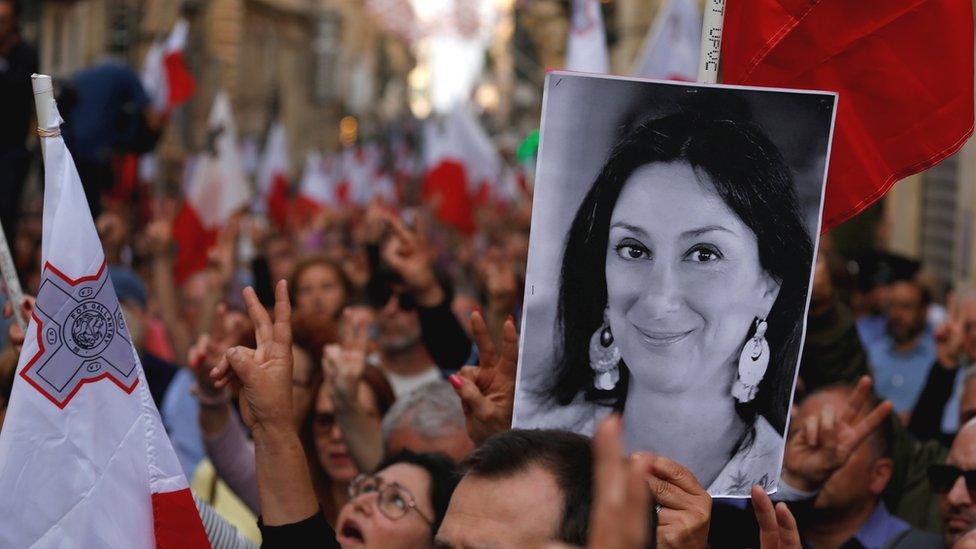
- Published17 October 2017
